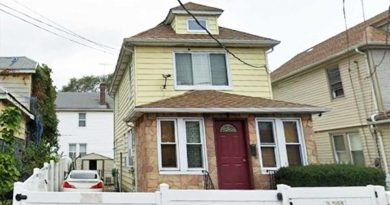Hopes of cancer 'cure' as stunning new therapy trains immune system to hunt and destroy disease
HOPES of a cancer “cure” are building as a new therapy trains the immune system to hunt and destroy the disease.
CAR T-cell therapy is tipped to be a “one-size-fits all” cancer treatment in the future.
Currently it can only be used against blood cancers rather than solid tumours such as breast and bowel cancer, which make up the majority of cancer cases.
And it is only available as a last resort on the NHS for patients who are close to death, funded through the Cancer Drugs Fund.
Costing up to £250,000 per patient, the groundbreaking drug is not currently deemed cost-effective by the NHS to give to every patient.
But experts say because the therapy almost wipes disease completely from the body, it would cut back on the price tag of repeated treatment after relapses, some of which already cost thousands of pounds.
Patients who were told they had just months to live have gone into remission after receiving the incredible CAR T-cell therapy (CAR-T).
Studies show it can abolish 80 per cent of cancer cells in patients with acute lymphoblastic leukaemia, the most common cancer in children.
Dr Andrew Furness, a consultant medical oncologist at the Royal Marsden Hospital in London, said the current uses of CAR T-cell are “just the tip of the iceberg”.
He told the Daily Mail: “Doctors and scientists are working tirelessly to expand its reach to many more patients.”
Dr Emma Nicholson, a consultant haematologist at the Royal Marsden Hospital, said it will “only a matter of time” before patients with tumours can benefit from CAR-T.
“It is too early to say whether CAR T-cells will be successful on solid tumours, but research to overcome the problems is already underway,” added Dr Astero Klampatsa, a CAR T-cell researcher at the Institute of Cancer Research.
In January, researchers at Cardiff University raised the prospect of CAR-T for all types of cancer.
Professor Andrew Sewell, lead author on the study from Cardiff University's School of Medicine, said raised the prospect of "universal" cancer therapy.
He said: "Current TCR-based therapies can only be used in a minority of patients with a minority of cancers.
"This raises the prospect of a 'one-size-fits-all' cancer treatment; a single type of T-cell that could be capable of destroying many different types of cancers across the population.
"Previously nobody believed this could be possible.”
What is CAR T-cell therapy?
CAR-T is a kind of treatment that uses a patient’s own T-cells – white blood cells that attack disease in the body.
T-cells are good at fighting infection, for example coronavirus.
But when it comes to cancer, T-cells struggle to tell the difference between a cancer cell and a normal healthy cell, allowing the disease to “hide” from the immune system.
In the first stage of the process, which takes several weeks, the immune cells are removed from the body by withdrawing blood.
The T-cells are modified in the lab to target the cancer cells, before being put back into the patient’s body within a few minutes.
This way the patient’s own immune system is working against the disease.
The T-cells recognise and attack the cancer cells. And because they stay in the body for a long period of time, they continue to work against the cancer.
T-cells have "receptors" on their surface that allow them to "see" at a chemical level.
But solid tumours won’t always show the protein targets that the T-cells are geared to spot.
The Cardiff team discovered a T-cell and its receptor that could find and kill a wide range of cancerous cells in the lab including lung, skin, blood, colon, breast, bone, prostate, ovarian, kidney and cervical cancer cells.
However, the research has been tested only in animals and on cells in the laboratory, and more safety checks would be needed before human trials could start.
‘LAST HOPE’
The development of cancer immunotherapy has been one of the most exciting advances in the field, and CAR-T is just one type, but the most widely used.
It is extremely complex as is personalised for each patient, which makes it difficult to roll out for everyone.
Currently it only targets a limited number of cancers, meaning only a couple of hundred people get it each year.
It is available for some children with leukaemia (B cell ALL) and some adults with lymphoma.
Kymriah was one of the new line of immune-boosting CAR T treatments approved on the NHS in September 2018.
The first patient to receive it in January 2019 was Yuvan Thakkar, an 11-year-old boy from Watford.
The treatment was his “last hope” after a bone transplant and chemotherapy had failed to cure his leukemia.
But many still miss out, as decisions on which patients are eligible are decided by a panel of expert clinicians following a referral.
Ashley Cain's daughter Azaylia Diamond, who died in April at only eight months old, may have benefited.
Ex on the Beach star Ashley and partner Safiyya Vorajee raised £1.6million to fly Azaylia to Singapore where CAR-T was her "only option" left – and she would need it "in a matter of weeks".
But doctors told the couple they wouldn't be able to cure Azaylia, whose leukaemia got rapidly worse.
Oscar Saxelby-Lee, a six-year-old boy from Worcester whose cancer battle has made headlines for several years, was also unable to get the treatment in the UK.
His parents Olivia and Jamie smashed their fundraising target of £600,000 to fly their son to Singapore to have CAR-T.
He is finally on the road to recovery after being diagnosed with leukemia in December 2018.
CAR-T and a stem cell transplant from his dad afterwards allowed him to return to school last June.
SIDE EFFECTS
But Ozzy, as his family call him, still suffers with illness as Olivia wrote on his Facebook page “even a common cold really does impact hugely” on children like him.
Like all treatments, CAR-T is not without its risks and doctors are not sure on what all of them are yet.
It can cause side effects including fever, dizziness and difficulty breathing.
Sometimes CAR T-cells can impact the brain, causing confusion, speech changes and seizures.
Some patients have died after having CAR-T – around three per cent in clinical trials.
Source: Read Full Article






